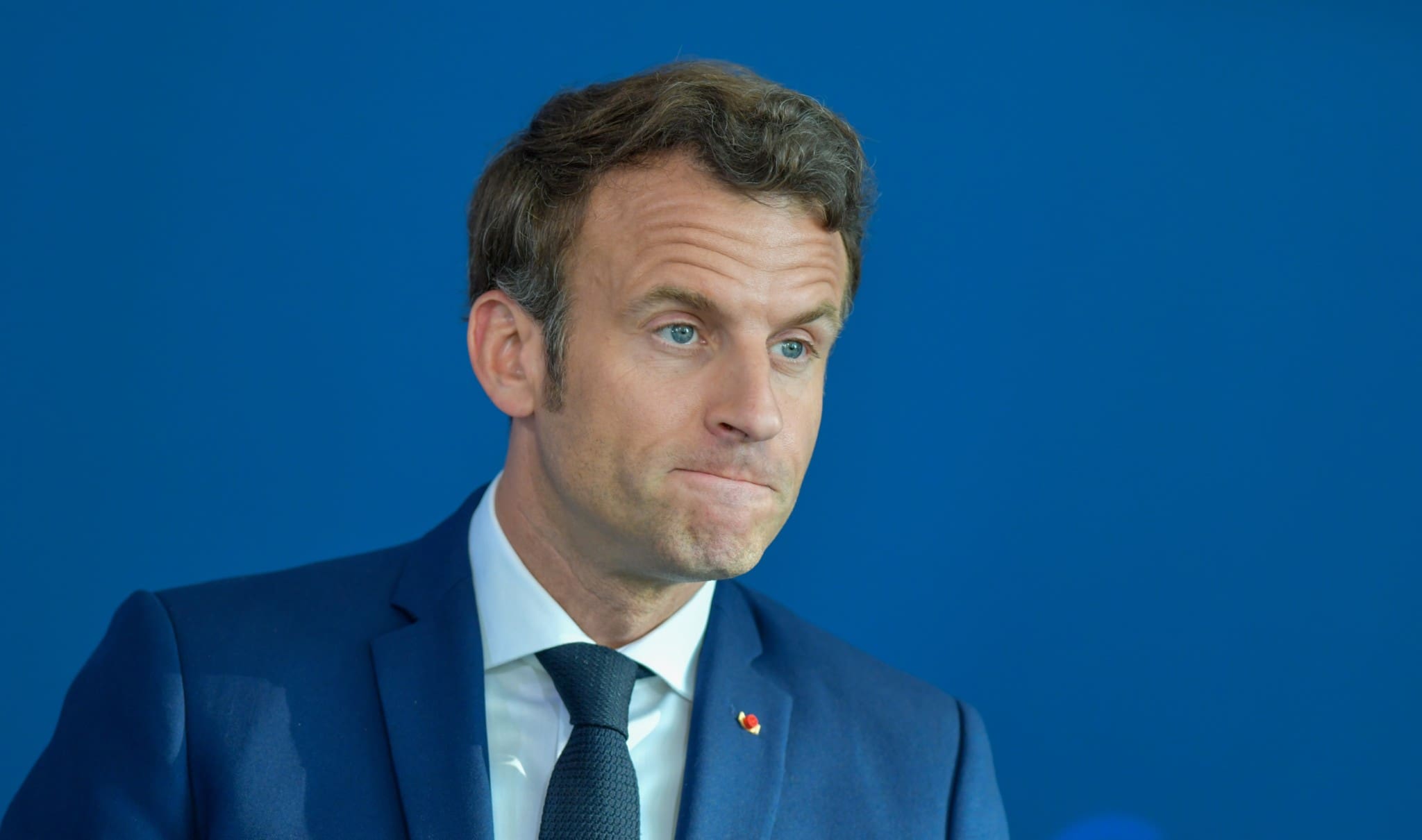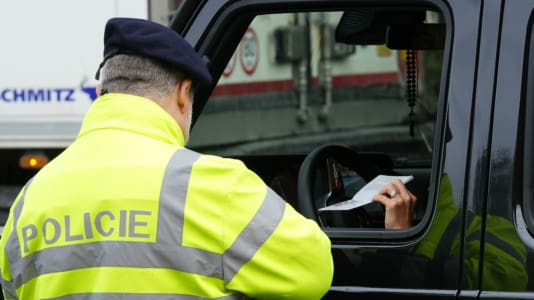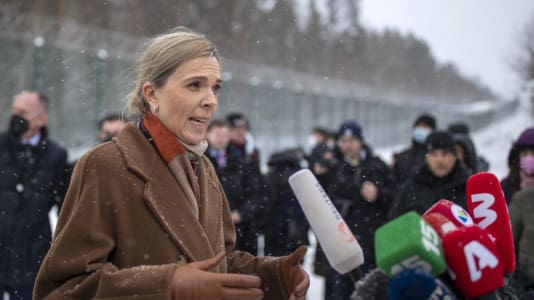By promising its former African colonies a “return to normal” in terms of the issuance of visas, France seems to have given up the idea of forcing these countries to take back their illegal migrants. Visas for nationals of Algeria, Tunisia, Morocco, Senegal, and the Ivory Coast had been severely restricted in September 2021 to unblock deportations of illegal immigrants, but Emmanuel Macron’s France has now backtracked with no clear explanation.
If this were only about Algeria, it would be reasonable to assume Macron had his eyes on Algeria’s gas, but the other countries concerned do not have any, and so it seems that France is determined to open the floodgates of immigration when other European countries are looking to bring immigration numbers down.
There has indeed been no significant progress in the ratio of actual deportations to the deportation orders issued by the French authorities. It could very well be that President Macron’s government no longer has any desire or incentive to pressure the countries of origin of illegal immigrants now that the spring 2022 presidential and legislative elections have passed.
[pp id=52513]
Last October, the 12-year-old Paris schoolgirl Lola was brutally raped and murdered by an Algerian national who was under a deportation order but had been left free to live on French soil. A few days after the crime, the French government spokesman, Olivier Véran, assured his fellow citizens that the government’s objective was to expel 100 percent of the citizens subject to deportation proceedings, a promise that had been made many times before.
In September 2021, shortly before the start of the French presidential campaign, Macron had already stated his willingness to force North African countries to take back their illegal migrants under an order to leave French territory.
“It is not acceptable that illegal aliens who have been identified as dangerous and disturbing public order are not taken back (by their home country),” he said at the time.
However, in announcing a “return to normal” for the issuance of visas to Maghreb (North African) countries, French Interior Minister Gérald Darmanin said that deportations had increased by only 20 percent in 2022.
[pp id=5862]
To put things into context, the rate of execution of orders to leave French territory, which was around 22 percent in 2012, had dropped below 10 percent since 2020. The situation was particularly complicated with the Maghreb countries: Between January and July 2021, just before France decided to introduce restrictions on the issuance of visas for these countries, Algeria had issued only 31 consular travel documents for 7,731 orders to leave French territory, and 22 deportations were effectively carried out, which is an execution rate of 0.2 percent.
For Moroccans, the execution rate was 2.4 percent. So an overall improvement of 22 percent over these worrying figures is really a drop in the ocean.
In fact, Darmanin did not specify country-by-country figures to justify his decision announced on Dec. 18 (but effective since Dec. 12) regarding Algeria. French Prime Minister Elisabeth Borne admitted last summer that, since the beginning of the year, Algeria had issued only 91 of the consular travel documents necessary to deport migrants back to their country of origin.
“We are probably at about 300 today,” said Xavier Driencourt, a former French ambassador to Algeria, at the end of December. Meanwhile, some 10,000 illegal Algerian immigrants arrive in France each year.
[pp id=58322]
The “return to normal” is therefore, on top of the 10,000 illegal immigrants who remain in France despite deportation orders, another 300,000 to 400,000 visas issued each year to Algerian nationals by France before the Covid-19 pandemic.
The only concession made by Algeria for this return to normal praised by the French interior minister is the lifting of the requirement of a negative Covid-19 test for Algerian citizens expelled from France.
Xavier Driencourt was not only French ambassador to Algeria from 2008 to 2012 and from 2017 to 2020. He is also a former director general of the foreign ministry’s administration and former head of the general inspectorate of foreign affairs. He has just published a book entitled “The Algerian Enigma, Chronicles of an Embassy in Algiers.”
Interviewed on Jan. 8 by Le Figaro, he warned: “Algeria is in a bad way, much worse than observers or the few authorized journalists think; 45 million Algerians have only one obsession: to leave and flee. And where else but to France, where every Algerian has relatives? Today, countless people apply for visas with the sole purpose of making a one-way trip, i.e., to stay in France one way or another with the hope of being regularized one day.”
[pp id=48639]
Since the Évian agreements of 1962, which marked the end of French Algeria, Algerians have had it easier than others to get the right to settle permanently in France once they have obtained a first visa.
For Driencourt, “the disastrous choices of 1962, the economic crisis; the corruption born of the oil rents; the discouragement, stimulated by France’s generosity, not only of the elites in the big cities of the north but also of the people of the countryside and deep Algeria are all reasons why, at the current rate, few people will remain in Algeria. The price of our blindness and our compromises will be massive immigration, by far exceeding what it is today, belligerent Islamism, and the ghettoization of our suburbs.”
In another interview given to Le Figaro shortly after the brutal murder of Lola in October, Driencourt explained why countries like Algeria refuse to take back their own citizens from France:
“I have often heard in Algiers a rather specious argument, officially brandished by Algerian diplomats in high-level meetings, that these illegals are the ‘fruit of a certain Westernization,’ of our ‘bad education,’ that they have been somehow ‘contaminated’ by our ‘bad morals,’ and we don’t want to see these bad subjects come back to Algeria, where they are moreover badly welcomed by their entourage. (…)
“Moreover, for all those countries, not only Algeria, such irregular emigration of turbulent youth is also a demographic adjustment variable, as 70 percent of the population is under 30 years old! (…) And then, sometimes — and I insist on saying that it is only sometimes, but I have heard this — you can perceive the underlying idea, in the background, that all this is the result of colonization, that it is in some way the price to pay for over a century of colonization.”
[pp id=21930]
Talking on Sud Radio on Dec. 20, MP Sébastien Chenu, of Marine Le Pen’s National Rally, linked this lifting of visa restrictions for people from Algeria, Tunisia, Morocco, and Senegal to the Asylum and Immigration bill that Elisabeth Borne’s government, pushed by Macron, intends to put to parliament soon.
One of the key provisions of this bill provides for the regularization of illegal immigrants working illegally in sectors where French companies have difficulty finding workers. This will inevitably create an influx of illegal immigration, warned Marine Le Pen at a press conference on Jan. 11.
“Nothing is done to seriously limit immigration in our country,” claimed the leader of the main opposition party in the French National Assembly during that press conference. “Nothing is being done to limit illegal immigration into our country, and promises that (from now on) deportations orders are going to be executed are as old as I am.”
“What justified the total relaxation of visas for Algeria?” asked Le Pen, on this occasion defending the right of French citizens to be informed about the reasons for this decision and its consequences in terms of a future influx of Algerian immigrants.
This is a question that France’s partners in the Schengen area would also be entitled to ask, as their efforts to limit non-European immigration risk being reduced to nothing by France’s policies in favor of mass immigration, both legal and illegal.





